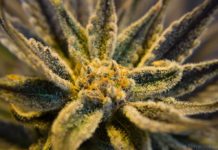The state of Washington opened its first recreational marijuana shop in 2014. Since that time, researchers and public health experts have looked for ways to find out whether Washington residents are smoking more marijuana and, if so, how much more.
Recent assays of Washington’s sewage has, remarkably, shown that Washington residents have indeed been smoking more marijuana over the last five years.
The crux of the research centered around urine samples taken at two sewage treatment facilities that serve approximately 250,000 people in Tacoma. Tacoma was selected for the study because of the fact that Tacoma’s collective use of marijuana and other drugs closely matches trends found in bigger cities like Seattle.
The researchers involved in the study were particularly concerned with detecting high levels of THC-COOH, a metabolic biproduct of THC consumption. THC is short for tetrahydrocannabinol, a kind of cannabinol found in marijuana partly responsible for the drug’s psychoactive effect. The findings showed a marked increase in the amount of THC-COOH from the beginning of 2014 and the beginning of 2017.
The increase in THC-COOH in sewage suggests that Washington state citizens were indulging in more marijuana after legalization of marijuana occurred and marijuana became commercially available in the state as of 2014. Or, does the research really suggest that? Some have conjectured that legalization may have lead to more inveterate users simply smoking more marijuana rather than new users using marijuana.
Another complicating factor is the potency of today’s marijuana, which has a much higher THC content that yesteryear’s. One very interesting finding arising from the study is that THC-COOH and other metabolites of marijuana have not risen quickly enough to account for the increased levels expected by very successful marijuana sales. In other words, there should be much more metabolic byproducts in the sewage than there are based strictly on sales of marijuana, no matter who is ultimately consuming it.
Although the study raises many questions, the ecological study is being praised by researchers since this kind of field study overcomes many of the problems associated with asking respondents to list their type and degree of drug usage. People are understandably less than forthcoming to tell researchers about certain topics, such as drug usage or sexual activity.
Case in point – only 14 percent of Washington adults over 21 claimed to have consumed marijuana in the last month. The study suggests this figure is much higher.




